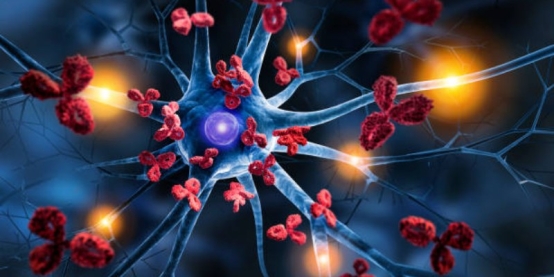The Role Of Diet In Managing Autoimmune Diseases
Autoimmune diseases are on the rise worldwide, affecting an estimated 4–5% of the population. These diseases—from rheumatoid arthritis (RA) and multiple sclerosis (MS) to inflammatory bowel disease (IBD)—occur when the immune system of the body inappropriately attacks its own tissues. Although there is a genetic factor, researchers now agree that environmental and lifestyle factors strongly influence the development and severity of autoimmunity.
One such factor under the spotlight is nutrition. Research shows that diet can either add fuel to the fire of immune dysfunction or encourage a return to balance. From inflammation control and gut health to nutritional deficiencies and body weight, food is no longer being viewed as an afterthought—it's recognised as a frontline approach to autoimmune disease management.
How Diet Affects Autoimmune Activity
Autoimmune disorders result from immune dysregulation—a breakdown that leads defence cells to attack healthy organs. Nutrition affects the process in three significant ways:

Chronic Inflammation: Refined carbohydrates, sugar, and processed fats initiate inflammatory signalling pathways. In contrast, anti-inflammatory agents such as omega-3s dampen cytokine storms that fuel autoimmune flares.
Gut Microbiome & Leaky Gut: Gut houses nearly 70% of immune function. Fibre, prebiotics, and fermented foods strengthen the intestinal barrier and feed good microbes, while ultra-processed food and additives create "leaky gut" and dysbiosis that trigger autoimmunity.
Regulation of T-Cells: The Western diet—saturated fat, refined sugar, and excess salt—drives immune cells to pro-inflammatory states, which worsen autoimmune severity. Mediterranean foods, on the other hand, favour regulatory T-cells that promote tolerance.
Key Nutrients for Autoimmune Support
Anti-Inflammatory Allies
Omega-3 fatty acids, found in fatty fish, flaxseed, chia, and algae oils, reduce pro-inflammatory prostaglandins.
Antioxidants: Polyphenols in berries, vitamin C in citrus, and vitamin E in nuts fight oxidative Stress that devastates cells.
Immune-Regulating Vitamins & Minerals
Vitamin D: Insufficiency correlates with worse outcomes in MS and RA.
Zinc & selenium: Regulate cell signalling and antibody production.
Magnesium & B12: Nerve and immune supportive, often deficient in autoimmune disorders.
Gut-Supportive Nutrients
Fibre & prebiotics: Present in legumes, whole grains, and vegetables, nourishing microbes that create short-chain fatty acids (SCFAs), safeguarding against inflammation.
Probiotics & fermented foods: Yoghurt, kefir, kimchi, and sauerkraut regulate microbial diversity.
Deficiencies in these vitamins and minerals are widespread among autoimmune patients, illustrating that nutrition is not just supportive but central to immune stability.
Evidence-Based Dietary Patterns
Several dietary approaches have been promising in autoimmune management:
Mediterranean Diet
Rich in olive oil, fish, legumes, fruits, and vegetables, this pattern lowers systemic inflammation. It is linked to reduced RA severity and improved metabolic outcomes, making it one of the most prescribed food models.
Whole-Food Plant-Based Diets
Endorsed by the American College of Lifestyle Medicine, these diets encourage gut health, decrease risk for obesity, and improve autoimmune markers.
Autoimmune Protocol (Aip) Diet
A more restrictive elimination diet removes inflammatory provocateurs such as grains, dairy, nightshades, and legumes, then reintroduces them incrementally. Research shows it helps patients with IBD and Hashimoto's thyroiditis improve their symptoms.
Gluten-Free & Low-Inflammatory Diets
Necessary in celiac disease, but also beneficial in reducing symptoms in RA and lupus patients who show gluten sensitivity.

Foods That Help vs. Foods That Harm
Foods That Reduce Severity
Leafy greens
Berries
Fatty fish
Fermented foods
Legumes and whole grains
Foods That Worsen Flares
Refined sugar
Processed meats
Hydrogenated oils and trans fats
Excess alcohol and salt
The Grey Zone
Dairy, gluten, and nightshades (peppers, tomatoes) are contentious. They worsen flares in certain patients, but others can tolerate them without issue—individual monitoring and elimination testing are best.
Obesity, Metabolic Health, and Autoimmunity
Obesity is both a risk factor and amplifier for autoimmune disease. Fat tissue isn't inert; it secretes inflammatory molecules that stimulate immune overactivity. Individuals with metabolic syndrome—often linked to diet-induced obesity—have heightened risk for RA, psoriasis, and MS.
Diet-induced weight loss lowers inflammation, improves metabolic markers, and generally lessens disease activity.
Gut Microbiome: The Missing Link
The gut is also called the "immune headquarters." In autoimmune diseases like lupus, RA, and IBD, dysbiosis—imbalanced microbes—is a constant finding. How diet re-balances microbes:
Fibre → Forms SCFAs that protect the intestinal lining.
Probiotics → Repopulate beneficial species and quieten pathogenic overgrowth.
Polyphenols → Found in green tea, grapes, and legumes, optimise gut-immune communication.
There is also mounting evidence to back interventions like prebiotics and even faecal microbiota transplants, but these are still being scientifically tested for safety and effectiveness.
Lifestyle Factors That Interact with Diet
Autoimmunity does not depend on food alone. Stress boosts cortisol, which worsens immune imbalance. Poor sleep perpetuates inflammation, while exercise enhances anti-inflammatory pathways if coupled with proper nutrition. Even changes in hygiene and global dietary trends can partly explain the rise in autoimmune cases.
Practical Implementation
Build a balanced plate: Half vegetables, one-quarter lean protein (beans, fish), one-quarter whole grains, topped with healthy fats like olive oil.
Remove safely: Eliminate common allergens like refined sugar or gluten for 4–6 weeks, then reintroduce them gradually.
Supplement wisely: Vitamin D, omega-3s, and magnesium fill gaps, but expert guidance is worth it.
Work with healthcare practitioners: Individualised diets minimise unnecessary restrictions and ensure nutrient adequacy.

Myths, Limitations, and What the Future Holds
Keep in mind: diet is not a cure for autoimmunity. It may reduce severity and improve quality of life, but it must complement—not replace—medical treatment.
Myth: One diet fits all autoimmune patients.
Reality: Nutritional response varies by genetics, microbiome, and disease type.
Future: Precision nutrition, driven by genetic and microbiome testing, will become an increasingly significant part of individualised planning.
Evidence to date is firm but not yet comprehensive, and continued research is needed to identify the most helpful food strategies.
Empowering Takeaway
Diet is at the forefront of autoimmune management. While no single eating approach cures disease, the overall takeaway from studies is clear: whole, nutrient-dense foods—especially fibre, omega-3s, and antioxidants—protect against inflammation and recalibrate the immune system. Patients who adopt these practices in tandem with medical care hold tremendous power over the course of their disease.
Sources
Related Posts

21 Best Road Trip Snacks to Satisfy Your Hunger

The Role Of Diet In Managing Autoimmune Diseases

How To Support Liver Health With Detoxifying Foods

The Ultimate Guide To The Ketogenic Diet For Beginners

How to Make Zucchini Lasagna: A Delicious Low-Carb Alternative
